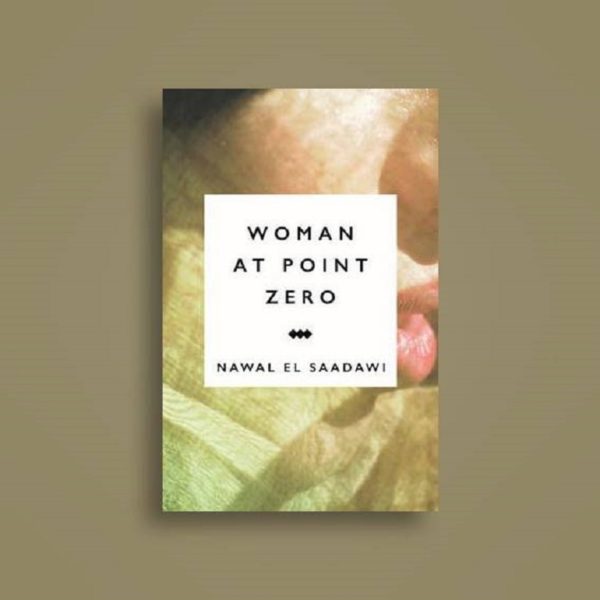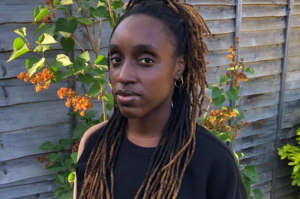
Long before Twitter and the #MeToo movement, there was Firdaus, a sex worker who was on death row for murdering her pimp. Her story, narrated to and chronicled by Egyptian feminist author Nawal El Sadaawi in the first-person biography-novel Woman at Point Zero, remains perennially relevant in its unflinching rendering of ways men have and continue to perpetrate violence against women. Although published in 1975 and set in Egypt, the abuses detailed in Woman at Point Zero aren’t unique, bearing an eerie similarity to those allegedly committed by Roger Ailes, Bill Cosby, Tariq Ramadan, Woody Allen, and Donald Trump, among others. “What they had in common was an avaricious and distorted personality,” Firdaus says of dominant men. “A never-ending appetite for money, sex and unlimited power.”
Her story begins in a small Egyptian village. She describes her father as a man who knows how to “beat his wife and make her bite the dust at night,” and has no scruples indulging his stomach while his famished children look on. “One evening I dared to stretch out my hand to his plate, but he struck me a sharp blow over the back of my hand,” Firdaus recounts. “I was so hungry that I could not cry.”
The first in a string of men to violate Firdaus is her uncle, who would later declare himself “a respected Sheikh and man of religion,” and sneer at the thought of sending Firdaus to university “where she’ll be sitting side by side with men.” Ironically, the abuse happens after Firdaus’ mother stops sending her to the fields and has her genital mutilated to ensure her chastity.
Following her parents’ demise, Firdaus moves with her uncle to Cairo, where she falls in love with school and imagines becoming a lawyer, judge, doctor or a Head of State despite knowing “women didn’t become heads of state.” Her dream, however, is truncated when her uncle and his wife decide to marry her off to an old Sheikh with a festering facial sore that smells like “dead dogs.”
Married life is an insufferable dungeon replete with beatings and verbal abuse. But when Firdaus tries to seek refuge in her uncle’s house, he bluntly informs her that all men beat their wives, with his wife adding that virtuous women ought to obey and not complain about their husbands.
Firdaus doesn’t return to her uncle’s when her husband assaults her again, fleeing instead to the streets where she finds nothing but an endless sea of harassments, injustices and ne’er do wells. The first man to “put me before himself” imprisons her as a sex slave; a policeman forces her to have sex with him after threatening to arrest her for prostitution, and men on buses press their genitals against her. Before long, prompted by an encounter with a madam and a stranger, she embarks on a career as a prostitute.
Wealth, independence, a library filled with books and a personal cook—Firdaus has them all until a pimp insists on profiting from her earnings. “Every prostitute has a pimp to protect her from other pimps, and from the police,” Marzouk says to her. “That’s what I’m going to do.”
Firdaus tries to get help from the justice system but soon realises that Marzouk has better connections than she does and the “law punishes women like me, but turns a blind eye to what men do.” Her biggest adversaries, she concludes, are men who perform chivalry, dishing advice on how to save her from herself but doing nothing when men like her husband maltreat her.
In the end, Firdaus is a woman fed up with the brazen crassness of entitled men and the patriarchy that upholds them. So fed up is she that death becomes a more comforting alternative to a commutation. In fact, she is unrepentant, defiant and stoic to the end, telling the police, “If I go out once again to the life which is yours, I’ll never stop killing [men]. So what is the use of my sending an appeal to the President to be pardoned?”
With each chapter, paragraph and sentence, one anxiously awaits the moment when Firdaus catches a break from the pounding blows of the misogynistic world she inhabits. But then again, no woman, regardless of her social status, religion, ethnicity or nationality, ever catches a break from leery stares, crude comments or unwanted physical contact. It’s the sad and perpetually cruel, unsafe and demeaning existence women have to tolerate and grapple with until they don’t. Until they can’t. Until they become that woman at point zero.









COMMENTS -
Reader Interactions